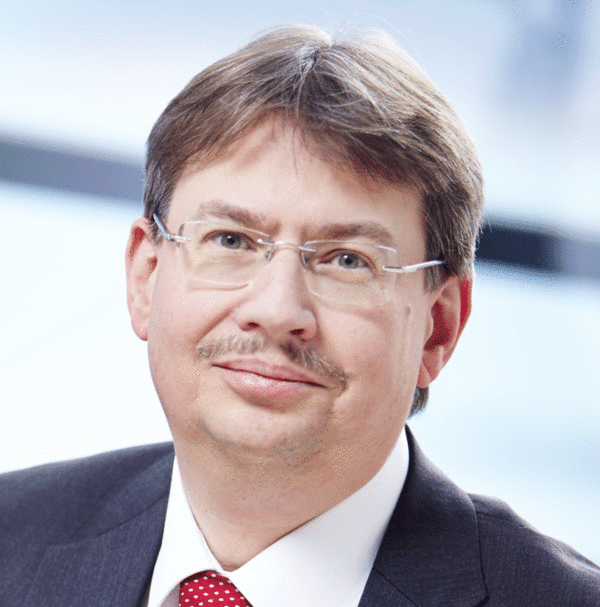How do you currently experience day-to-day work?
It's more strenuous than before. We have a lot of video conferences, we have to prepare a lot of things that you would otherwise discuss on the side, and now you can only do that by phone, via video conferences or other methods such as e-mails and chats, etc. That can be grueling in parts and more demanding in others. That can be exhausting in parts and exhausting in larger parts.
Have you gotten used to the new circumstances in the meantime? What has changed for you?
As a rule, you can get used to the circumstances. It works quite well. However, I would prefer to work directly in the office. That's more pleasant.
What measures do you take to make teaching happen for the students?
Of course, I quite like to use the laptop camera and a tool called "Camtasia", you can do a lot with it. Currently, I record my lectures via Camtasia and work with book chapters that students have to familiarize themselves with. From around the beginning or middle of May, we will start to discuss with the students in the lectures, which for me will be two Master's lectures in the summer semester, and set tasks accordingly in the form of webinars. We'll see how that works out.
Which inIT projects are you currently working on?
We are currently working on several projects with me in the research group. These are all essentially projects that deal with machine learning, information fusion, image processing and computer intelligence. For example, there is a project funded by the German Federal Ministry of Education and Research (BMBF) on the topic of intelligent technical systems. Another project is running in the it's owl leading-edge cluster, which also deals with machine learning for products and production. Then the AI marketplace has also just been launched, i.e. a marketplace for algorithms for artificial intelligence and business models. This is something where we are currently taking our first steps, so to speak. And then we also have a larger project in the area of state funding, which is called "Time for Research". It's about new approaches to banknotes and how to design them specifically and, if possible, much faster than before. These are essentially the major projects that we have a lot to do with in the working group, but more will be added soon.
What do you miss in your day-to-day work?
I miss my colleagues, some of them very much, I have to be honest. And I also miss the students. As a rule, they always give positive feedback, which makes me personally very happy and builds me up. And when they give negative feedback, that's a reason for me to learn from it. Because as we all know, we talk about lifelong learning and we all never stop learning.


